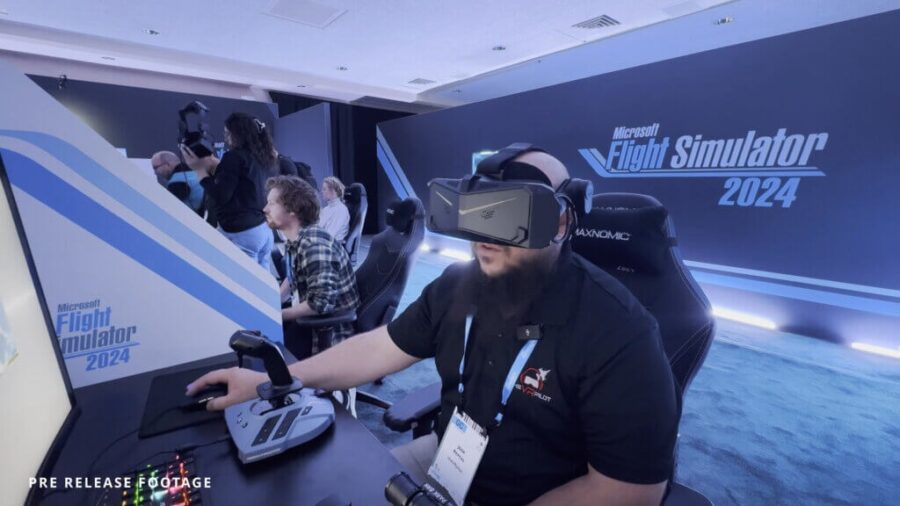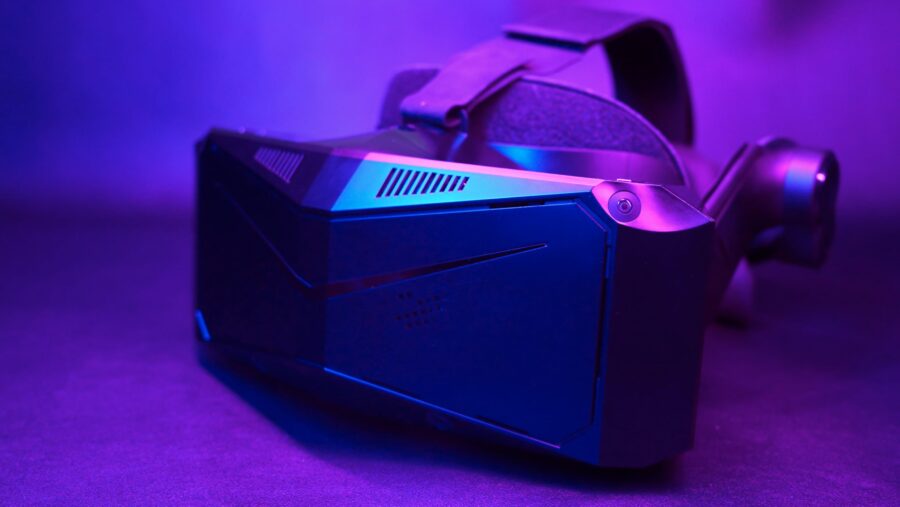
In Virtual Reality News
November 12, 2024 – Microsoft has recently selected Pimax, a virtual reality (VR) hardware manufacturer and provider of ultra-wide field of view (FoV) and high-resolution consumer VR devices, as an official VR partner for its upcoming Microsoft Flight Simulator 2024 (MSFS 2024).
Recently highlighted in an announcement on the MSFS 2024 blog, the Pimax ‘Crystal Light’ VR headset offers a high-resolution display, as well as other features tailored for flight simulation enthusiasts. The device was also available to attendees at a recent MSFS 2024 World Preview event in Arizona, where VR developers and flight simulation enthusiasts had the opportunity to test it.

Built specifically to elevate the sim experience, according to Pimax, the Crystal Light headset delivers a per-eye resolution of 2880×2880 pixels. With variable refresh rates (72Hz, 90Hz, and 120Hz), the headset provides adaptable visual performance depending on user preferences and hardware capabilities. Additionally, the device offers integrated tracking and audio, eliminating the need for external base stations, and comes in a configuration without controllers, aligning with a wide range of MSFS user needs and sim setups.
Other features of the headset that gear it to VR flight simulation include the use of glass aspheric lenses that offer a wide field of view and reduce stray light, and local dimming that helps to enhance visual clarity and depth perception critical for sim pilots.
Commenting on the collaboration, Microsoft stated in its blog post: “Pimax Crystal Light is a great PC VR headset for flight simmers who crave stunning clarity to easily read all the dials, buttons, and screens in the cockpit, as well as deep immersion to experience Microsoft Flight Simulator 2024 in remarkable detail.”
![]()
In the lead-up to the release of Microsoft Flight Simulator 2024, which is due out on November 19, other peripheral technology partners have also been highlighted, including Tobii, a developer of eye tracking technology. Tobii’s Eye Tracker 5 (shown above) enables in-game head and eye movement tracking, allowing MSFS users to experience enhanced cockpit and environmental immersion. Compatible with a variety of screen sizes and conditions, Tobii’s eye tracking functionality offers users more fluid control and increased spatial awareness without the need for the full immersion of VR wearables.
For more information on Pimax and its Crystal Light VR headset, please visit the company’s website. To learn more about Microsoft Flight Simulator 2024, click here.
Image credit: Microsoft / Pimax / Tobii / theVRpilot
About the author
Sam is the Founder and Managing Editor of Auganix. With a background in research and report writing, he has been covering XR industry news for the past seven years.
